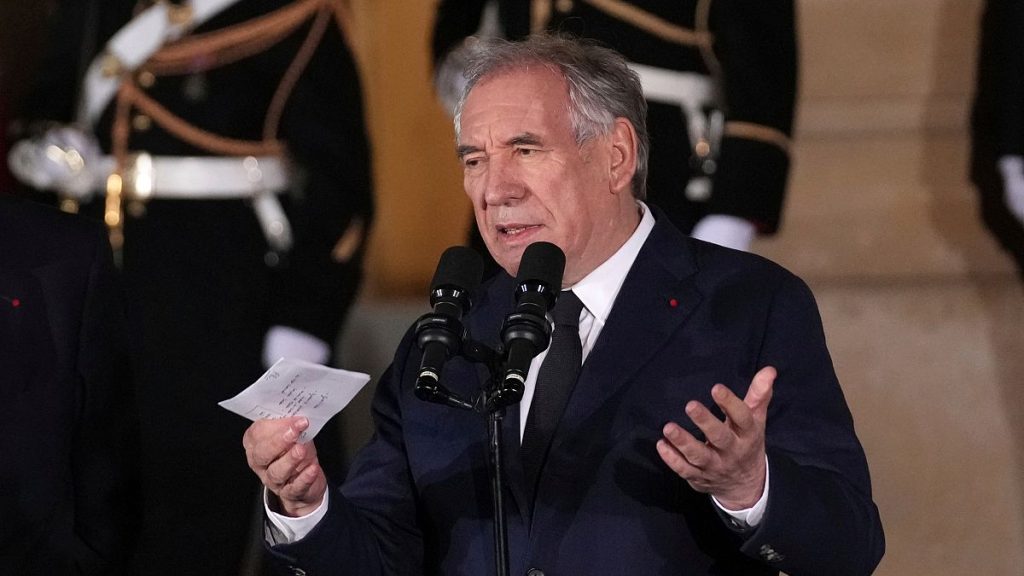François Bayrou, France’s newly appointed Prime Minister, has unveiled his cabinet, marking the fourth government formation in under a year. The political landscape remains turbulent, following President Emmanuel Macron’s call for snap elections last summer after his party suffered a defeat against the far right in the EU elections. This resulted in a deadlocked parliament, with three distinct blocs unable to find common ground, a situation Bayrou’s government must navigate. The immediate priority for the 34-member cabinet, comprised largely of conservative and centrist politicians, is securing approval for the 2025 budget. This task presents a significant challenge, given the fragmented parliament and the precedent set by the previous Prime Minister’s failed attempt to bypass parliamentary approval for the social security budget. Bayrou’s success hinges on his ability to forge alliances and secure sufficient support to avoid a similar fate.
The cabinet appointments themselves have sparked controversy, particularly due to the perceived influence of the far right. While no far-right members are explicitly included in the cabinet, the government’s formation has been criticized for allegedly requiring the tacit approval of Marine Le Pen’s party to ensure its survival. This has alienated potential allies and fueled accusations of compromising principles for political expediency. Prominent figures, including conservative leader Xavier Bertrand, have publicly denounced the government’s composition, citing the far-right influence as the reason for declining cabinet positions. The Socialist Party leader, Olivier Faure, echoed these sentiments, labeling the new cabinet a “provocation” and criticizing Bayrou’s failure to engage with more moderate parties, such as the Socialists, to build a broader coalition. These criticisms underscore the deep divisions within French politics and the challenges Bayrou faces in establishing a stable and broadly accepted government.
The cabinet includes a mix of familiar faces and new appointees. Elisabeth Borne, the former Prime Minister, takes on the role of Minister of Education, becoming the second most important figure in the government. Jean-Noël Barrot retains his position as Foreign Affairs Minister, while Gérald Darmanin moves from the Interior Ministry to become the new Justice Minister. Bruno Retailleau remains at the helm of the Interior Ministry. Manuel Valls, a former Prime Minister under President Hollande, assumes responsibility for Overseas Territories. Other notable appointments include Sébastien Lecornu continuing as Minister of the Armed Forces, Rachida Dati remaining as Minister of Culture, Eric Lombard stepping in as the new Minister for the Economy, and François Rebsamen, another former minister under Hollande, taking charge of Territories and Decentralisation. These appointments reflect a blend of experience and fresh perspectives, but the overall composition remains contentious.
Bayrou’s government faces a precarious path forward. The hard-left France Unbowed party (LFI) has already signaled its intent to file a no-confidence vote, highlighting the immediate threat to the government’s stability. The fractured parliament, coupled with the strong opposition from both the left and segments of the traditional right, makes securing parliamentary approval for the 2025 budget a formidable task. Bayrou’s ability to navigate this complex political landscape and build the necessary alliances will be crucial for his government’s survival. The upcoming Council of Ministers meeting on January 3rd and the reopening of the National Assembly on January 13th, when a confidence vote can be held, will be critical moments for the new government.
The overarching challenge for Bayrou is to break the political deadlock that has gripped France since the snap elections. The fragmented parliament and the deep ideological divisions between the various blocs require a delicate balancing act. The criticism surrounding the perceived influence of the far right further complicates matters, making it harder to build bridges and forge consensus. Bayrou must demonstrate his ability to unite disparate factions and find common ground to address the pressing challenges facing the nation. The success or failure of his government will have significant implications for the future direction of French politics and the stability of the country.
The success of Bayrou’s government hinges on a number of factors, including his ability to effectively manage the competing interests within his cabinet, navigate the complexities of the parliamentary process, and build a consensus around the 2025 budget. He must also address the concerns surrounding the far-right influence and demonstrate a commitment to inclusive governance. The upcoming weeks will be a crucial test of his leadership and his ability to steer France out of its current political quagmire. His ability to secure a vote of confidence and successfully pass the budget will be key indicators of his government’s viability and its ability to address the challenges facing the nation.














